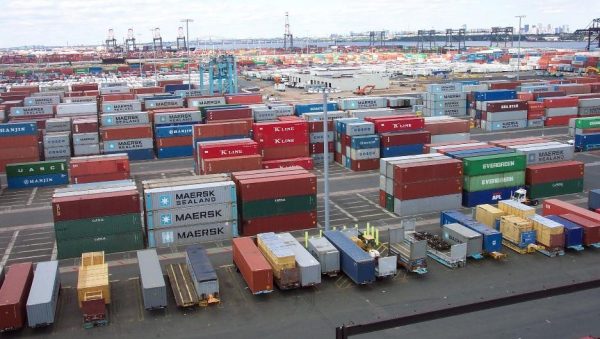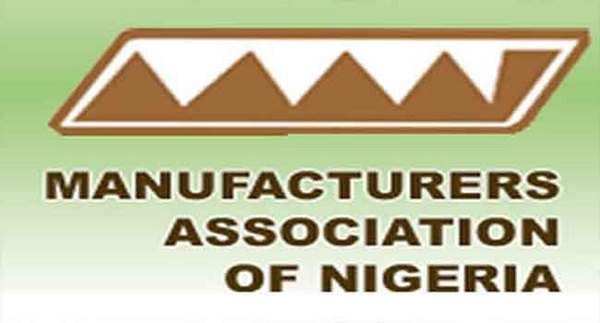Shipping Companies, Terminals Ignore FG Directive To Suspend Charges

· STOAN keeps mum, APMT’s compliance sparks debate
· Truckers raise concerns over 30% cost reduction
By Kenneth Jukpor
More than one month after the Federal Government directed terminal operators and shipping companies to suspend storage charges and demurrages respectively, these companies may have conspired to ignore the directives.
Terminals under the aegis of Seaport Terminal Operators Association of Nigeria (STOAN) had lamented that the association wasn’t involved in the deliberation, while shipping lines under the umbrella of Shipping Agencies of Nigeria (SAN) have also jettisoned the directive.
Consequently, importers and freight agents continued to groan under the current overbearing fiscal environment while terminal operators await approval from STOAN to adhere to the directive which intends to alleviate the burden on port users.
The response of terminal operators is more worrisome given the assurances that NPA would grant credit notes commensurate to the rental reliefs granted by the operators to consignees for the free storage period.
Port observers have also frowned at the disposition of terminal operators who have been quick to donate hundreds of millions to the Federal Government as part of contribution to the fight against COVID-19 pandemic when they ignore the critical government directive that would have more economic impact on Nigerians.
Giving credence to this perceived conspiracy last week, the General Manager of Five Star Logistics Terminal, Mr. Wolfgang Schneider told our correspondent that his terminal couldn’t unilaterally implement the directive.
“We are doing what other terminals are doing,” Wolfgang told MMS Plus when contacted on Five Star Logistics compliance to the directive.
Meanwhile, sources revealed to MMS Plus that STOAN planned to disclose its position on the directive to suspend storage charges on Thursday last week, however, the association eventually decided to keep mum.
When contacted, a top management source at the AP Moller Terminal (APMT) Apapa averred that the terminal had begun implementing the directive.
The source who preferred anonymity didn’t disclose when APMT started complying.
“I can tell you authoritatively that APMT has stopped collecting storage charges. When we started complying shouldn’t be an issue. Anyone in doubt can approach the terminal and find out,” the source said.
However, the President of the Association of Nigerian Licensed Customs Agents (ANLCA) Hon. Tony Iju Nwabunike debunked claims that APMT or any port terminal had complied lamenting that freight forwarders haven’t been subjected to the most hostile working environment.
“We have pushed more than we can but every index has shown that shipping companies, terminal operators and banks aren’t helping matters. How would freight forwarders carry out this essential service the government wants us to do?”
“Every aspect of palliative directive from the government have been ignored by terminal operators and shipping companies. Freight forwarders are more than overwhelmed with the challenges at the ports today and the situation has been further compounded by the increase in exchange rate from N326/$ to N361/$”, he said.
The Public Relations Officer of National Association of Government Approved Freight Forwarders (NAGAFF) Mr. Stanley Ezenga also corroborated Nwabunike’s views as he lamented that most terminal operators and shipping lines were yet to comply to the directives to suspend charges.
His words: “We are yet to see full compliance from shipping companies and terminal operators the government directive to suspend charges. This is very unfortunate. Most of the operators haven’t seen this as an opportunity to give back to the port sector”
According to him, NAGAFF has instructed members to keep their receipts handy for refund noting that only Maersk Line recently complied while some freight agents indicated that APMT complied during the later parts of last week.
Contrarily, the President of African Women in Maritime (WIMAFRICA) Nigerian Chapter, Hajia Bola Muse who also doubles as Financial Secretary of ANLCA, told our correspondent that APMT has not complied with the directive to waive charges.
Although there have been reports that Ports and Cargo Handling Terminal, complied during the penultimate week, efforts to get the company’s position on the directive were futile.
When contacted the Head of Corporate Communications, SIFAX Group, Mr. Muyiwa Akande opined that STOAN would be in a better position to react on the issue.
This development, coupled with earlier report by Tin Can Island Container Terminal (TICT) that STOAN would have to give an approval mean that there is probably a conspiracy to flout the directive.
In another development, Nigerian Shippers Council (NSC) agreement with truckers to slash truck haulage cost by 30% for the period under the pandemic has been received with mixed reactions.
The breakdown of the new fares published by NSC from Lagos ports to selected locations: Ikeja/Agege environs 20ft containers which cost N400,000 previously now costs N280,000 while 40ft previously N500,000 now costs N350,000; for Amuwo/ Okota / Satellite axis 20ft formerly N350,000 is now N245,000 while 40ft previously N400,000 now cost N280,000. Lagos Island 20ft previously N350,000 now goes for N245,000 and 40ft formerly N400,000 is now N280,000.
Badagry/ Agbara/ Mowe/ Shagamu/ Lekki Free Zone/ Ikorodu has 20ft previously N450,000 now costs N315,000 while 40ft formerly N550,000 crashes to N385,000. Similarly the 30 percent reduction applies to cargoes heading to other States from Lagos ports.
The crucial meeting with NSC management representatives of National Association of Road Transport owners (NARTO), Association of Maritime Transport Owners (AMATO), Road Transport Employers Association of Nigeria (RTEAN), Corporate Truck Feet Owners Association, Container Truck Owners Association, Amalgamation of Container Truck Owners and the Council of Maritime Transport Union and association (COMTUA), present.
Although the truckers agreed to set-up a monitoring and compliance team to ensure these new rates are complied with, there are indications that the implementation may have hitches.
Speaking with MMS Plus on the new fares, the President of AMATO, Chief Remi Ogungbemi stressed that the 30% reduction in cost would only be feasible if extortion and other encumbrances are eliminated.
“I don’t want to spark an argument with other truck operators because each time we say there is extortion another group says it is false. So, other stakeholders don’t know what to believe. If this 30% reduction would work, then all encumbrances facing truckers have to be eliminated,” Ogungbemi said.
Another trucker and chieftain at NARTO, Alhaji Inuwa Mohammed told our correspondent that NARTO members would honour the new rates.
However, he opined that it was ironic for the government to demand decrease in charges from port operators while it proceeded to increase the exchange rate which affects port business.
“We had a meeting with Shippers Council and agreed to this 30 percent reduction but we would comply only for the period of pandemic. However, it is ironic that the federal government has exchange rate while is demanding operators to slash costs,” the NARTO chieftain said.
Also speaking on this, ANLCA President, Nwabunike said Shippers’ Council has done so much to get such an agreement with truckers, but he asserted that bad roads and continuous extortion makes the 30% haulage reduction unrealistic.
His words: “The Executive Secretary of NSC, Mr. Hassan Bello is working very hard but I’ll rather wait to see how these new haulage charges would work because the factors militating against trucking such as bad roads, absence of effective call-up system and extortion from truckers still exist.”
According to him, until these challenges are addressed it would be unrealistic to call for a downward review of truck haulage fares.
“If truckers have agreed to this on the basis that it is their contribution at palliatives during this pandemic, then I hope it works,” the ANLCA President added.
NAGAFF spokesperson, however, said the cost of trucking services are determined by the demand. He posited that trucking services has dwindled, hence, the 30% cut was realistic only because of the low demand.







